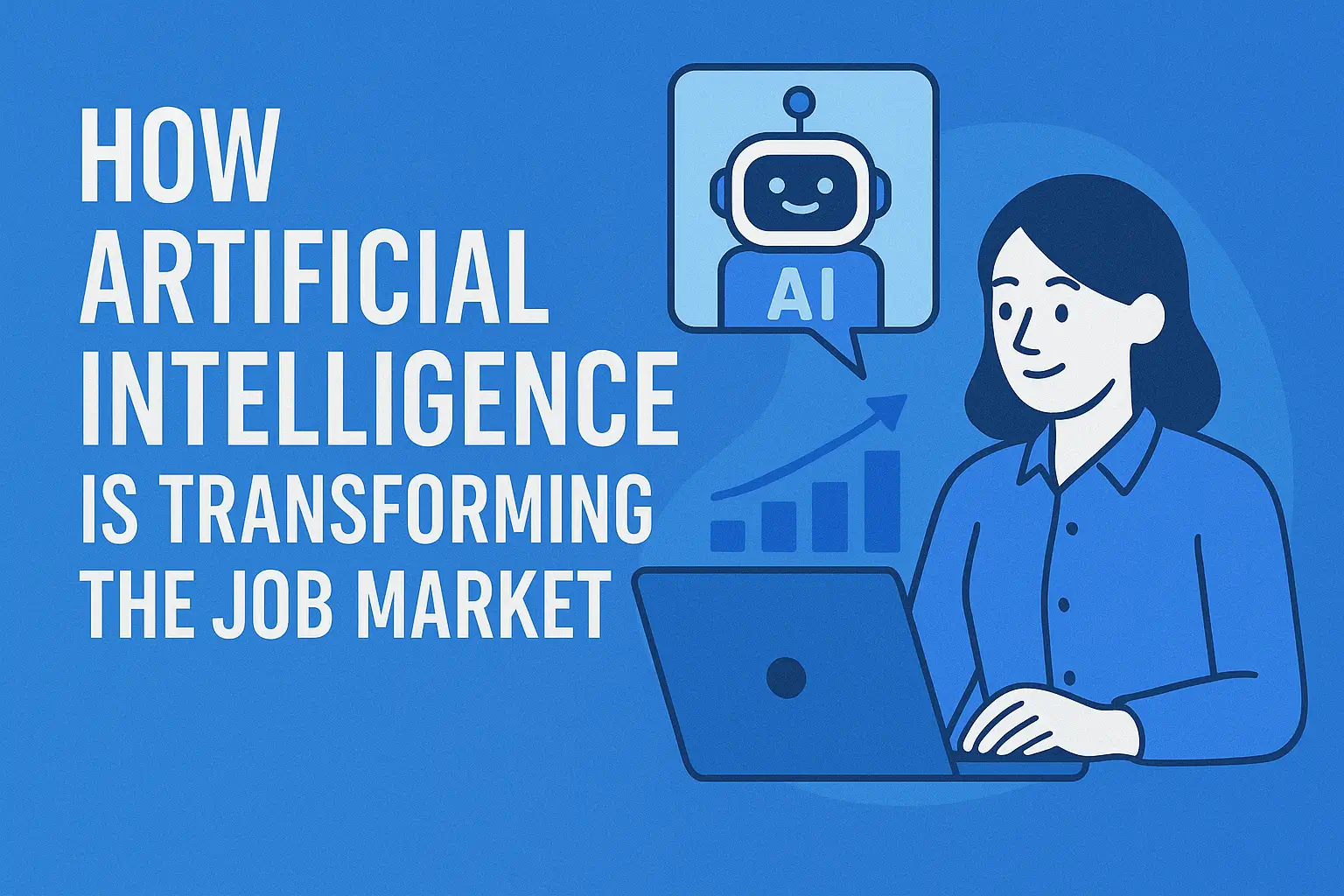Artificial Intelligence (AI) is no longer a futuristic concept—it’s a powerful force actively reshaping the world of work. From automating routine tasks to redefining how companies hire, train, and interact with customers, AI is altering the job market in ways that are both exciting and challenging. This article explores how AI is transforming employment across industries, what skills are in demand, and how professionals can adapt to this new reality.
The Role of AI in the Modern Workplace
AI technologies are increasingly embedded in tools and systems used by businesses every day. This integration is changing workflows, enhancing decision-making, and automating repetitive functions.
Key Applications of AI in the Workplace:
- Automation of Routine Tasks: AI can perform data entry, scheduling, and reporting with higher speed and accuracy.
- Customer Service Enhancement: AI chatbots provide instant responses to customers, improving satisfaction and reducing labor costs.
- Recruitment and Hiring: AI-driven platforms help filter resumes, assess candidate fit, and even conduct initial video interviews.
- Data Analysis and Insights: AI tools analyze large datasets to uncover trends, support strategic decisions, and forecast outcomes.
AI-Driven Job Creation
While AI is automating many tasks, it’s also creating new types of jobs. The emergence of AI-related roles highlights the technology’s role as a job creator, not just a job destroyer.
Examples of Emerging Roles:
- AI and Machine Learning Specialists
- Data Scientists and Analysts
- Automation Engineers
- Ethical AI Officers
- Human-AI Interaction Designers
Many of these roles require a blend of technical skills and domain knowledge, which presents opportunities for both tech-savvy professionals and industry veterans willing to reskill.
Industries Most Affected by AI
Some industries are experiencing AI-driven change more rapidly than others:
1. Healthcare
AI supports diagnosis, treatment recommendations, and patient monitoring. It’s also enhancing administrative processes like billing and record management.
2. Finance
Banks and fintech firms use AI for fraud detection, credit scoring, algorithmic trading, and customer personalization.
3. Retail
AI personalizes shopping experiences, predicts inventory needs, and powers recommendation engines.
4. Manufacturing
AI improves supply chain logistics, predictive maintenance, and quality control through real-time data analysis.
5. Education
AI powers adaptive learning platforms and helps institutions track student performance and engagement.
Challenges and Concerns
The rise of AI in the job market comes with concerns that must be addressed:
Job Displacement
Many fear that automation will lead to widespread unemployment. While it’s true that some jobs will become obsolete, history shows that technological progress often shifts labor demand rather than eliminating it altogether.
Skill Gaps
The demand for AI-related roles has exposed gaps in skills, particularly in data analysis, programming, and AI ethics. Upskilling and reskilling will be crucial for workforce resilience.
Ethical and Legal Issues
AI systems must be transparent, fair, and accountable. New roles are emerging to manage these aspects, including AI ethics advisors and regulatory compliance officers.
The Importance of Soft Skills
While technical proficiency is important, soft skills are also in high demand in the AI age:
- Critical thinking and problem-solving
- Creativity and innovation
- Emotional intelligence
- Collaboration and adaptability
These human skills complement AI’s capabilities and are vital in roles involving decision-making, customer interaction, and team leadership.
Preparing for the AI Job Market
Whether you’re entering the workforce or considering a career shift, there are steps you can take to align yourself with the AI-driven job landscape.
1. Learn the Basics of AI
Start with beginner-friendly courses on platforms like Coursera, edX, or Khan Academy. Understanding how AI works provides a solid foundation.
2. Develop Technical Skills
Focus on programming (Python, R), data science, machine learning, and cloud computing. Certifications in these areas can boost your resume.
3. Stay Informed
Follow AI trends through reputable blogs, podcasts, and research papers. Knowledge of where AI is heading will keep you relevant.
4. Gain Practical Experience
Use AI tools like ChatGPT, DALL·E, and Midjourney to explore real-world applications. Join hackathons, work on open-source projects, or build a portfolio.
5. Network with AI Professionals
Attend meetups, webinars, or conferences to learn from and connect with industry experts.
How Companies Are Responding
Forward-thinking organizations are not just investing in AI—they’re also supporting their employees through:
- Reskilling programs and internal training
- Cross-functional project opportunities
- Open communication about AI’s role in business
- Inclusion of ethical guidelines in AI adoption
By investing in people as well as technology, these companies are creating a more balanced and inclusive future of work.
Final Thoughts: Embracing the Change
AI is transforming the job market, not by eliminating human value but by redefining it. In this new era, the most successful professionals will be those who view AI not as a threat, but as a partner in productivity, creativity, and growth.
Whether you’re a student, a job seeker, or a business leader, understanding and embracing AI will be key to thriving in tomorrow’s workforce. Start now—because the future of work is already here.
